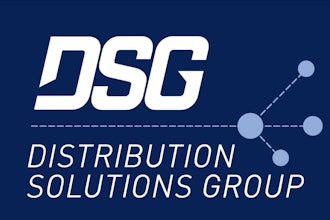
This article first appeared in the September/October print issue of Industrial Distribution. To view the full digital edition, click here.
For many companies looking to enter international markets, the only way to initiate is to collaborate. But when doing business in countries with somewhat different attitudes toward corruption, extra due diligence with your partners – both at the beginning and during the relationship – is needed to ensure potential problems don’t escalate. The rules of engagement must be much deeper than just the contractual agreements.
Many American companies do business overseas in the form of full joint ventures or agreements with sales agents and logistics partners; such partnerships can fill the void of limited knowledge, relationships or, in some cases, funds, particularly in ventures or industries that require hefty investment. The overseas expertise is critical to get product to market.
When an international partner engages in questionable, yet often locally-accepted, business behaviors, an American entity or individual might find themselves subject to both overseas laws and U.S. regulations. Indeed, corruption perpetrated by agents and distributors acting on behalf of American individuals and companies isn’t an excuse when the Department of Justice investigates FCPA-related issues. Just because you don’t have full ownership doesn’t mean you don’t have accountability.
This issue is complicated by the fact that the distinction between government and business in many countries is a fine line, if the line even exists. The recent Petrobras corruption scandal in Brazil, dramatic discoveries of riches in the homes of Chinese officials, and the removal of Peru’s attorney general from office are all manifestations of problems that can arise when business leaders and government officials are one and the same.
Since any suspect behavior on the part of international partners can come back to you, extra effort should be spent at the beginning and throughout the agreement to avoid potentially significant financial impact, brand damage, or even jail time. It’s not just the Department of Justice you should be worried about; any illicit activity identified might be just the most visible layer of an onion covering a range of issues that not only smell bad, but can lead to increasing losses, decreased credibility, and spoiled reputation.
Here are some actions to consider:
Write a Corporate “Pre-Nup:” Assess the need for the expertise and knowledge as well as what type of involvement you want your partner to have. Determine whether values are aligned. Assigning over rights to a joint venture partner requires a high level of trust, so know who you are getting into bed with and don’t be afraid of the corporate equivalent of a pre-nuptial agreement. And, yes, this should include terms and conditions in which the partner promises not to cheat or engage in inappropriate behavior.
Engage in Respectful Challenges: That said, just because you have an agreement doesn’t mean the partner is going to be squeaky clean, and it certainly doesn’t exonerate you from liability. Don’t be afraid to ask for justification when the bills come in and do your intermittent checks and balances. This means requiring routine financial reporting as well as making allowances for – or even demanding – audits when situations call for a closer look.
Establish Open Lines of Communication: Ensure that communications are ongoing and that both parties are comfortable with raising issues and challenges as they arise. Acknowledging and continually reassessing what each partner brings to the table during a changing business climate will ensure that the right decisions are made and that methods to achieve them are appropriate and transparent.
Strong partnerships are prerequisite for many companies doing business overseas and, with a wave of global trade agreements under discussion, the opportunities will only increase. The global economy brings many business benefits on all sides of such arrangements. But acknowledging where expertise is needed and the legal, regulatory, and contractual requirements to establishing such relationships is just the start. The values and cultural beliefs of a partner are just as important. Writing the rules of engagement early – and holding your partners to them – will facilitate a lasting and more productive relationship.
Carolyn Goga, a Director at strategy consulting firm ARRYVE, builds quality and performance in finance, risk and procurement environments, ensuring that increasingly costly requirements of corporate compliance are balanced against business demands for speed and agility. With experience working in international accounting and complex multinational corporations, she blends process improvement and design, risk management and international regulatory compliance to create a potent mix of strategy-driven, action-oriented and globally-savvy performance.
Email: [email protected]
LinkedIn: https://www.linkedin.com/pub/carolyn-goga/2/b2b/8a8























